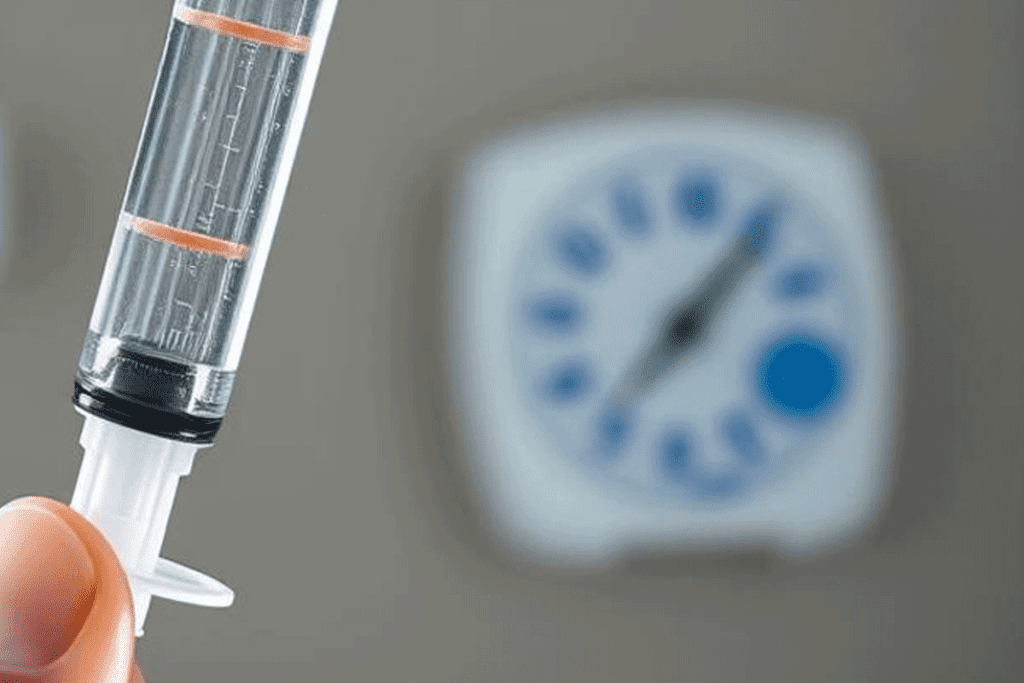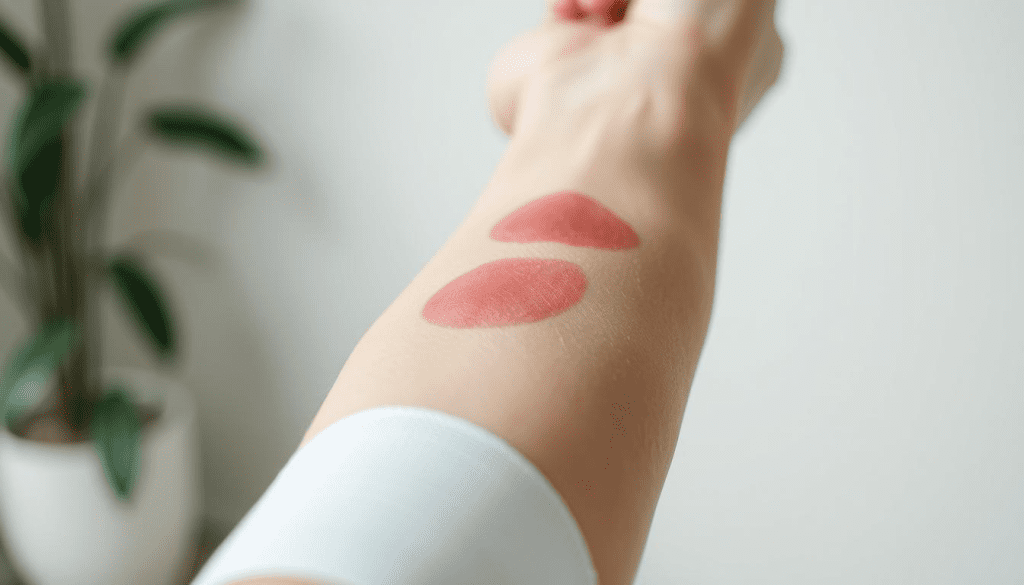Allergy shots, a type of immunotherapy, are changing allergy and asthma care by combining long-standing knowledge with new safety measures. At our clinic, we understand that you might worry about the safety of allergy shots. It’s important to know that allergy shots contain tiny amounts of allergens designed to help your immune system build tolerance slowly and safely. Most people tolerate allergy shots very well, with only minor side effects like redness or swelling at the injection site. Serious allergic reactions are rare because treatments are carefully supervised by specialists in safe environments. Allergy shots have proven to be effective in reducing allergy symptoms and preventing the progression of allergic diseases.

We want you to know that immunotherapy shots are generally safe. They’ve been around for years to help with allergies and asthma. They also help with reactions to stinging insects.
We aim to give top-notch healthcare. We support patients from all over. In this article, we’ll talk about how safe immunotherapy is. We’ll cover the kinds of reactions, safety steps, and the newest in treatment.
Key Takeaways
- Immunotherapy shots are considered safe when given the right way.
- Years of experience have made immunotherapy safer.
- Subcutaneous immunotherapy treats many allergies.
- We’re dedicated to excellent healthcare and support for all patients.
- Understanding reactions and safety steps is key to immunotherapy’s safety.
Understanding Allergy Shots and Immunotherapy
Allergy shots, also known as allergen immunotherapy, are a long-term fix for severe allergies. They involve regular injections with small amounts of the allergen. This helps the body build up a tolerance.

What is Allergen Immunotherapy?
Allergen immunotherapy is a treatment that makes patients less sensitive to certain allergens. It works by slowly increasing the dose of the allergen. This way, the body learns to see the allergen as less dangerous, reducing allergic reactions over time.
We know that allergen immunotherapy is the only treatment that can change how the immune system reacts to allergens. It’s a great option for those with severe allergies.
How Immunotherapy Shots Work
Immunotherapy shots introduce small, controlled amounts of the allergen into the body. This gradual exposure makes the immune system less sensitive to the allergen. It reduces the symptoms of allergic reactions.
- The treatment starts with a build-up phase, where injections are given once or twice a week.
- The dose is gradually increased until the maintenance dose is reached.
- Maintenance injections are then given at regular intervals, typically every 2-4 weeks.
Common Conditions Treated with Immunotherapy
Allergen immunotherapy is used to treat several allergic conditions, including:
- Allergic rhinitis (hay fever)
- Allergic asthma
- Insect sting allergies
Understanding how immunotherapy allergy treatments work and what conditions they treat helps patients make better choices for their care.
Safety Profile of Allergy Shots
Allergy shots are effective, but it’s important to know about their safety. These shots aim to make people less allergic to certain things. It’s key to look at the possible risks and side effects.
Overall Safety Statistics
Most people don’t have serious reactions to allergy shots. Only a small number of patients experience serious side effects. But it’s rare for these reactions to be life-threatening.
Most patients either don’t react at all or have mild reactions. A study found that most side effects are local and don’t last long.
Key Safety Statistics:
- Low risk of systemic reactions
- Rare instances of near-fatal and fatal anaphylaxis
- Most reactions are local and mild
Risk Factors for Adverse Reactions
Some things can make reactions to allergy shots more likely. These include:
- History of asthma or other respiratory conditions
- High sensitivity to the allergen being treated
- Previous systemic reactions to immunotherapy
- Incorrect dosing or administration of the allergen extract
Knowing these risk factors helps doctors make treatment plans safer.
Comparing Safety to Other Allergy Treatments
Allergy shots are safer than some other treatments. They are better than long-term use of some medicines, which can have big side effects.
Antihistamines help, but long-term use can cause problems. Immunotherapy offers long-term relief with fewer side effects when done right.

In summary, allergy shots have a good safety record. They are safer than some other treatments. Understanding the risks helps patients safely get the benefits of immunotherapy.
Types of Reactions to Immunotherapy Shots
It’s important to know about the different reactions to immunotherapy shots for safety and treatment. Immunotherapy, or allergy shots, helps people get used to certain allergens. While safe, these shots can cause reactions, from mild to severe.
Local Reactions: Redness and Swelling
Local reactions are the most common side effect. They show up as redness, swelling, or itching where the shot was given. Up to 86% of people get these reactions, but they are usually mild.
Some reactions can be bigger and more uncomfortable. But they are not usually serious. We tell patients to watch for these signs and talk to their doctor if they’re worried.
Systemic Reactions: Symptoms and Frequency
Systemic reactions affect the whole body, not just where the shot was given. Symptoms can include sneezing, itchy eyes, and, in severe cases, asthma or anaphylaxis. These reactions are less common but more serious and need quick medical help.
- Common systemic symptoms include:
- Generalized itching or hives
- Coughing or wheezing
- Swelling of the face, lips, or throat
- Dizziness or fainting
We stress the need to tell doctors about any systemic symptoms. This helps adjust treatment plans.
Fatal Reactions: Understanding the Rare Cases
Fatal reactions to immunotherapy shots are very rare but can happen. Anaphylaxis, a severe allergic reaction, is the main cause of fatal reactions. We remind patients to know the signs of anaphylaxis and get help right away if they see them.
To lower risks, we have strict rules for giving immunotherapy shots. This includes screening before treatment and watching patients closely after.
Protocols That Ensure Immunotherapy Safety
The safety of allergy immunotherapy is ensured through careful protocols and monitoring. We focus on patient safety by doing thorough pre-treatment checks, controlled dosing, and watching patients after injections.
Pre-Treatment Screening
We do detailed pre-treatment screenings before starting allergen immunotherapy. We look at the patient’s medical history, current health, and any past reactions to shots. Injections are not given to patients with uncontrolled asthma because they can raise the risk of bad reactions(Source).
Dosing Schedules and Build-up Phases
We have a special dosing schedule that slowly increases the allergen dose. This helps the patient get used to it without big risks. The schedule is made just for each patient, based on how they react and how sensitive they are.
Observation Periods After Injections
After giving allergy immunizations, we watch patients closely for any bad reactions. This watching time is key to catching any big problems right away. We make sure this step is part of our treatment to keep patients safe.
“The key to safe immunotherapy lies in careful patient selection, precise dosing, and vigilant monitoring.”
By sticking to these steps, we lower the risks of immunotherapy for allergies. This makes it a safe and helpful treatment for our patients.
Modern Advances in Allergy Shots
Allergy treatment is changing fast, thanks to new immunotherapy shots. We’re learning more about allergies, leading to safer and more effective treatments.
Biologic Immunotherapy Agents
Biologic immunotherapy agents are a big hope for allergy treatment. These medications target specific parts of the allergic response. They aim to reduce the risk of bad reactions from traditional shots.
Research shows these agents can help with severe asthma and other tough allergies. This is a big step in managing complex allergies.
Omalizumab (Xolair) and Its Safety Profile
Omalizumab, or Xolair, is a biologic agent. It binds to IgE antibodies, which start allergic reactions. By lowering free IgE, Xolair can lessen allergic symptoms.
“Omalizumab has been shown to significantly reduce the risk of anaphylaxis and other severe allergic reactions in patients undergoing immunotherapy.”
Studies show Xolair is usually safe. But, like any drug, it can have side effects. Patients need close watch by doctors.
Innovations Improving Treatment Safety
New ideas are making allergy shots safer. These include better dosing and new allergen extracts. These changes help avoid bad reactions and make treatments more effective.
The field of immunotherapy is getting smarter. With new research and treatments, we can offer safer and more effective allergy care.
European Academy Guidelines for Immunotherapy
The European Academy of Allergy and Clinical Immunology’s guidelines are key in shaping allergy immunotherapy. They offer a framework for healthcare professionals to give top-notch care to those with allergies.
Allergy immunotherapy is a vital treatment for many allergic diseases. The guidelines stress the need to tailor treatment to each patient. This ensures the treatment is both effective and safe.
Recommendations for Allergic Asthma
For those with allergic asthma, the guidelines suggest a thorough assessment before starting immunotherapy. This includes looking at the patient’s asthma severity, sensitization to specific allergens, and past treatment responses.
The European Academy says allergen immunotherapy is a good option for patients with mild to moderate allergic asthma. It aims to lessen symptoms and possibly slow disease progression.
- Assessment of asthma severity and control
- Identification of sensitized allergens
- Evaluation of previous treatments and response
Recommendations for Allergic Rhinitis
For allergic rhinitis, the guidelines suggest allergen immunotherapy for those not well-controlled with medication or who prefer it. It’s most helpful for those with severe symptoms or a big impact on quality of life.
Important factors include:
- Severity of symptoms and impact on quality of life
- Patient preference for immunotherapy
- Presence of comorbid conditions such as asthma
Safety Monitoring Protocols
Safety is a top priority in allergy immunotherapy. The guidelines highlight the need for strict safety monitoring to avoid adverse reactions, including allergic side effects.
Key points include:
- Pre-treatment screening for risk factors
- Careful dosing schedules and build-up phases
- Observation periods after injections to monitor for immediate reactions
By following these guidelines, healthcare providers can ensure patients get safe and effective allergy immunotherapy. This improves outcomes for those with allergic asthma and rhinitis.
Special Considerations for Different Patient Groups
Immunotherapy isn’t the same for everyone. It needs to be customized for each patient. When giving immunotherapy shots, doctors must think about the special needs and risks of different groups.
Children and Immunotherapy Safety
When it comes to allergy shots for humans, kids need extra care. Studies show immunotherapy is safe for them and can help with allergies for a long time. B, kids might get local reactions like redness and swelling at the shot site.
- Pre-treatment screening to identify any possible risk factors.
- Dosing schedules tailored to the child’s age and weight.
- Observation periods after injections to watch for bad reactions.
Elderly Patients and Risk Assessment
Elderly patients getting immunotherapy shots need a detailed risk check. This is because they might have other health issues and take many medicines. Doctors must think about the good and bad sides of immunotherapy for them.
- Comprehensive medical history to find out about possible risks.
- Adjustments to dosing schedules based on the patient’s health.
- Keep a close watch for signs of serious reactions.
Patients with Asthma or Multiple Allergies
For those with asthma or many allergies, allergy injections can really help. But they might face a higher risk of serious reactions. It’s important to manage their treatment carefully, possibly with omalizumab (Xolair), to keep them safe.
Doctors can give better and safer immunotherapy by knowing what each patient group needs. This tailored approach helps make allergy shots more effective and safer for everyone.
Multidisciplinary Approach to Immunotherapy
Ensuring the safety and success of immunotherapy requires a team effort. This teamwork is key to giving patients the best care during allergy treatments.
Role of Allergists and Immunologists
Allergists and immunologists are vital in giving immunotherapy. They check if patients can getallergy shots and make treatment plans just for them. Their knowledge helps patients get the care they need.
These specialists do many things, including:
- Checking if immunotherapy is right for patients.
- Changing treatment plans as needed.
- Watching for side effects and finding ways to reduce risks.
Nursing Staff Training for Safety
Nurses play a big part in safely giving immunotherapy shots. They need training to know how to handle reactions and keep patients safe.
Training nurses includes:
- Learning about immunotherapy and its side effects.
- Knowing how to handle reactions.
- Giving shots correctly and keeping patient records up to date.
Experts say, “Training nurses well is key to top-notch care in immunotherapy.”
“Nurses do more than give shots. They offer care and keep patients safe during treatment.”
Emergency Response Teams
Having a team ready for emergencies is critical for immunotherapy. These teams are trained to act fast and keep patients safe.
Emergency teams usually have:
- Doctors and nurses are rarely eager to handle reactions.
- Emergency meds and tools.
- Plans for different reactions.
In summary, teamwork is key to safe and effective immunotherapy. Together, healthcare teams can give patients the best care and help them get the most from treatments like allergy shots.
Conclusion: Weighing the Benefits and Risks of Immunotherapy
Immunotherapy shots are a great option for many with allergies. They help patients understand the good and bad sides to make smart choices. Both types of shots can really help with allergic rhinitis, giving long-term relief.
At livhospital.com, we aim to provide top-notch healthcare to international patients. Our team makes sure allergy shots are given correctly, reducing bad reactions. This way, allergy shots can greatly improve life for those with allergies.
Choosing immunotherapy for allergies needs careful thought and close monitoring. Following the right steps and guidelines helps doctors and patients. This way, patients can safely get the most out of their shots, managing their allergies well.
FAQ
What is allergen immunotherapy, and how does it work?
Allergen immunotherapy, also known as allergy shots, is a long-term treatment. It aims to make patients less sensitive to specific allergens. The treatment works by slowly increasing the dose of the allergen, helping the body build up a tolerance. This reduces the severity of allergic reactions over time.
Are allergy shots safe for everyone?
Allergy shots are generally safe when given correctly. But, they might not be right for everyone, like those with certain health conditions or severe allergies. It’s important to have a pre-treatment check to see if there’s a risk of bad reactions.
What are the common side effects of immunotherapy shots?
Side effects can include local reactions like redness and swelling at the injection site. Systemic reactions can also happen, ranging from mild to severe. These can include anaphylaxis, a serious and life-threatening allergic reaction.
How can the risk of adverse reactions be minimized?
To lower the risk of bad reactions, careful pre-treatment checks are key. Following the dosing schedule and watching for reactions after shots is also important. A team approach, including allergists, immunologists, and nurses, is essential.
What is the role of omalizumab (Xolair) in immunotherapy?
Omalizumab (Xolair) is a biologic treatment that can make allergy shots safer and more effective. It helps reduce the risk of severe reactions like anaphylaxis. This makes it great for people at high risk.
Are there any long-term side effects of allergy shots?
Rarely, allergy shots can have long-term side effects. Most people do well with the treatment, and the benefits of long-term relief often outweigh the risks. Regular checks and following safety guidelines are key to minimizing risks.
Can children receive immunotherapy shots?
Yes, children can get immunotherapy shots. Early treatment can help lessen the severity of allergies over time. But the safety and effectiveness for kids should be carefully checked by a healthcare professional.
How do healthcare providers ensure the safe administration of immunotherapy?
Healthcare providers ensure safe immunotherapy through careful steps. These include pre-treatment checks, dosing schedules, watching for reactions after shots, and a team approach. This team includes allergists, immunologists, and nurses.
What are the latest advances in allergy immunotherapy?
New advances include biologic treatments like omalizumab (Xolair) and other innovations. These aim to make treatment safer and more effective. These developments are always improving to better help patients with allergies.
How do allergy shots compare to other allergy treatments in terms of safety?
Allergy shots are seen as a safe and effective treatment compared to others. They offer long-term relief from symptoms and can reduce the need for medication. But safety should be evaluated for each person individually.
Reference
- American Academy of Allergy, Asthma & Immunology (AAAAI). (2024). Allergen immunotherapy (allergy shots). Retrieved fromhttps://www.aaaai.org/tools-for-public-and-patients/allergy-library/allergy-shots-immunotherapy
- European Academy of Allergy and Clinical Immunology (EAACI). (2020). Allergen immunotherapy: An update on recent developments. EAACI Guidelines. Retrieved fromhttps://www.eaaci.org/guidelines-2020/allergen-immunotherapy-an-update-on-recent-developments
- Centers for Disease Control and Prevention (CDC). (2023). Immunization safety: What you need to know about vaccine safety. Retrieved fromhttps://www.cdc.gov/vaccinesafety/index.html























